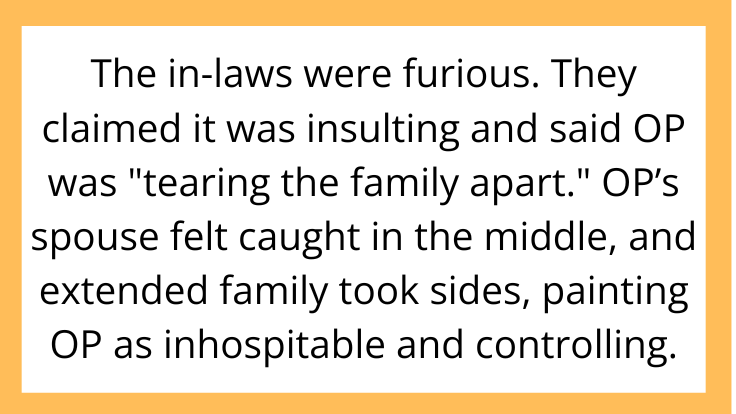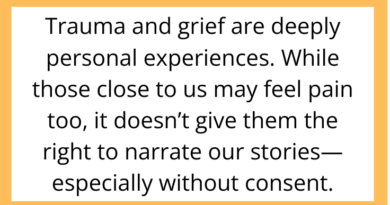AITAH for Not Letting My In-Laws Stay at Our House During Their Visit?
When it comes to marriage, blending families often brings unexpected challenges—and housing arrangements are a frequent battleground. A recent r/AITAH post sparked major debate when the original poster (OP) refused to let their in-laws stay at their home during a family visit, choosing instead to offer to pay for a nearby hotel.
What followed was a storm of accusations, guilt-tripping, and division within the family. So, was OP being disrespectful, or were they simply setting a healthy boundary? Let’s explore the situation, the reactions, and what we can learn about privacy, expectations, and compromise in family dynamics.
The Scenario: Guests vs. Boundaries

OP explained that their in-laws had a habit of overstaying, snooping through personal items, and criticizing everything from cooking to home decor. After years of discomfort, OP and their spouse agreed that for this upcoming visit, it would be better if the in-laws stayed in a hotel.
They didn’t ban them from visiting—just asked that they not sleep over. OP even offered to cover the hotel costs to soften the blow.
The in-laws were furious. They claimed it was insulting and said OP was “tearing the family apart.” OP’s spouse felt caught in the middle, and extended family took sides, painting OP as inhospitable and controlling.
Why the Right to Privacy Shouldn’t Be Controversial

There’s an outdated idea that marriage means full integration of families, with unlimited access to each other’s homes and lives. But for many couples, especially younger generations, privacy is a form of emotional and mental security.
Here’s why OP’s boundary isn’t outrageous:
-
Everyone deserves a safe space: Home is often the only place where people can relax without judgment.
-
Repeated disrespect breaks trust: OP’s experience with past visits (snooping, criticism) makes their concerns valid.
-
Offering a compromise: Paying for the hotel isn’t just generous—it shows a willingness to meet in the middle.
Boundaries are not walls. They’re doors with locks—and guests should knock before entering.
When “Hospitality” Becomes Emotional Blackmail
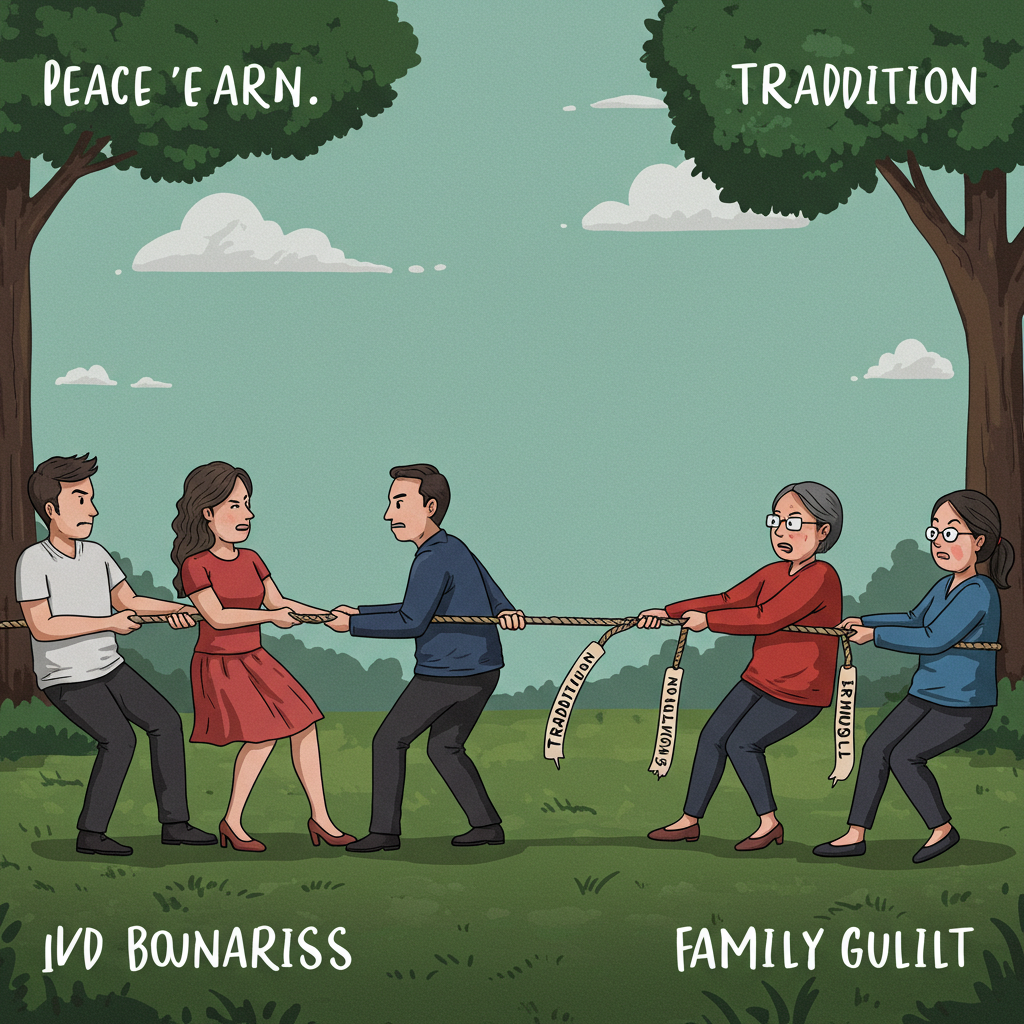
Some family members believe that being a good host means surrendering your comfort entirely. But that mindset can cross into emotional manipulation.
In this case, OP was labeled ungrateful, disrespectful, and selfish. But ask yourself:
-
Is it fair to demand overnight stays in someone else’s home?
-
Should past behavior be ignored for the sake of tradition?
-
Does disagreeing with in-laws automatically make someone a villain?
Criticism wrapped in the language of “family duty” is still criticism.
Reddit’s Verdict: A Mixed Bag with Strong Opinions

As expected, r/AITAH had a field day with this post. Many users supported OP, praising them for setting clear boundaries and avoiding toxicity. Others empathized with the in-laws’ hurt but agreed that hosting should be a choice, not an obligation.
Some dissenters felt that OP should have compromised—perhaps allowed a short visit or one-night stay to keep the peace.
In the end, the majority leaned toward NTA (Not the Ahole)**, especially given OP’s willingness to provide alternative accommodations at their own expense.
How to Handle In-Law Conflicts Without Burning Bridges
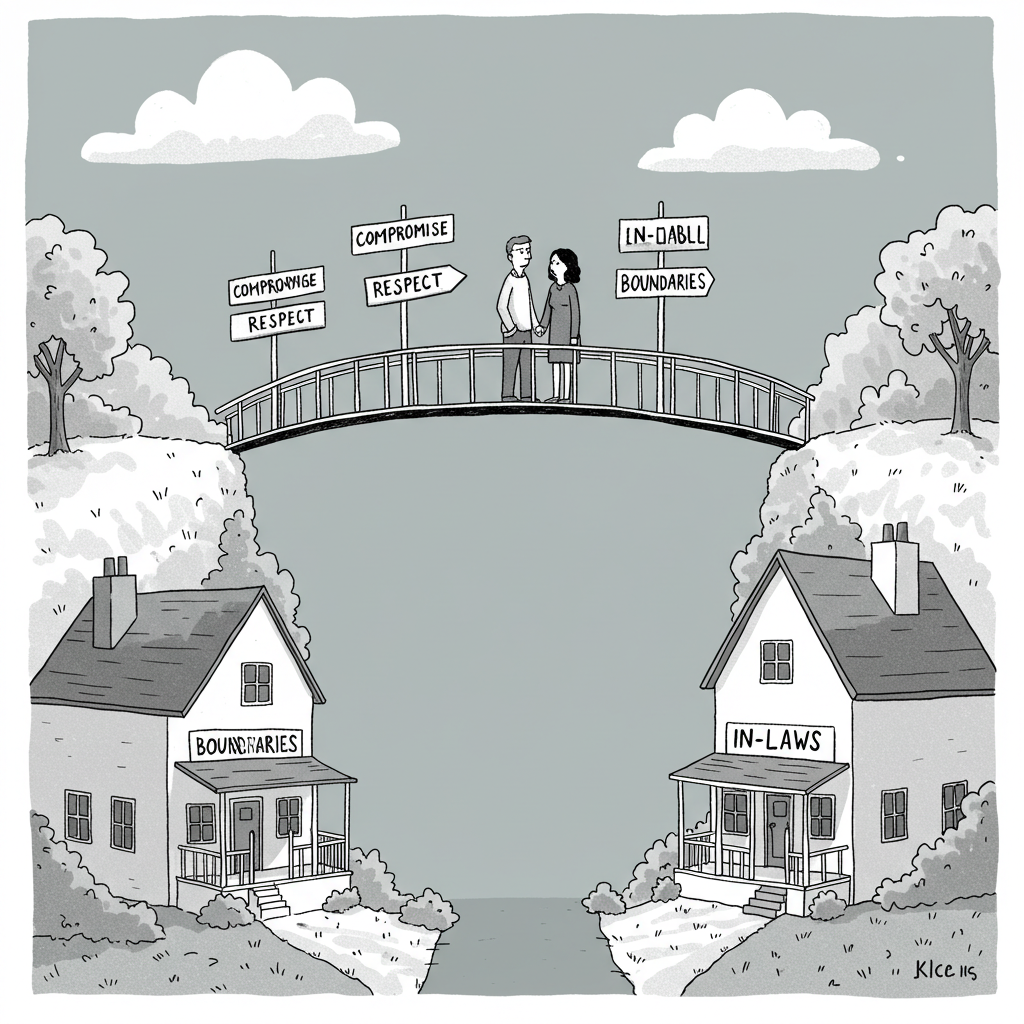
If you’re facing a similar conflict, here are some tips:
-
Have a united front: Ensure your spouse supports the decision before telling the in-laws.
-
Use “we” language: Present it as a joint decision, not a personal attack.
-
Offer alternatives: Hotel stays, shorter visits, or daytime-only hangouts show you’re not cutting off contact.
-
Stay firm but kind: Boundaries will be tested—but consistency builds respect over time.
Remember, the goal is not to punish—it’s to protect your peace.
Final Thoughts: Boundaries Don’t Equal Betrayal
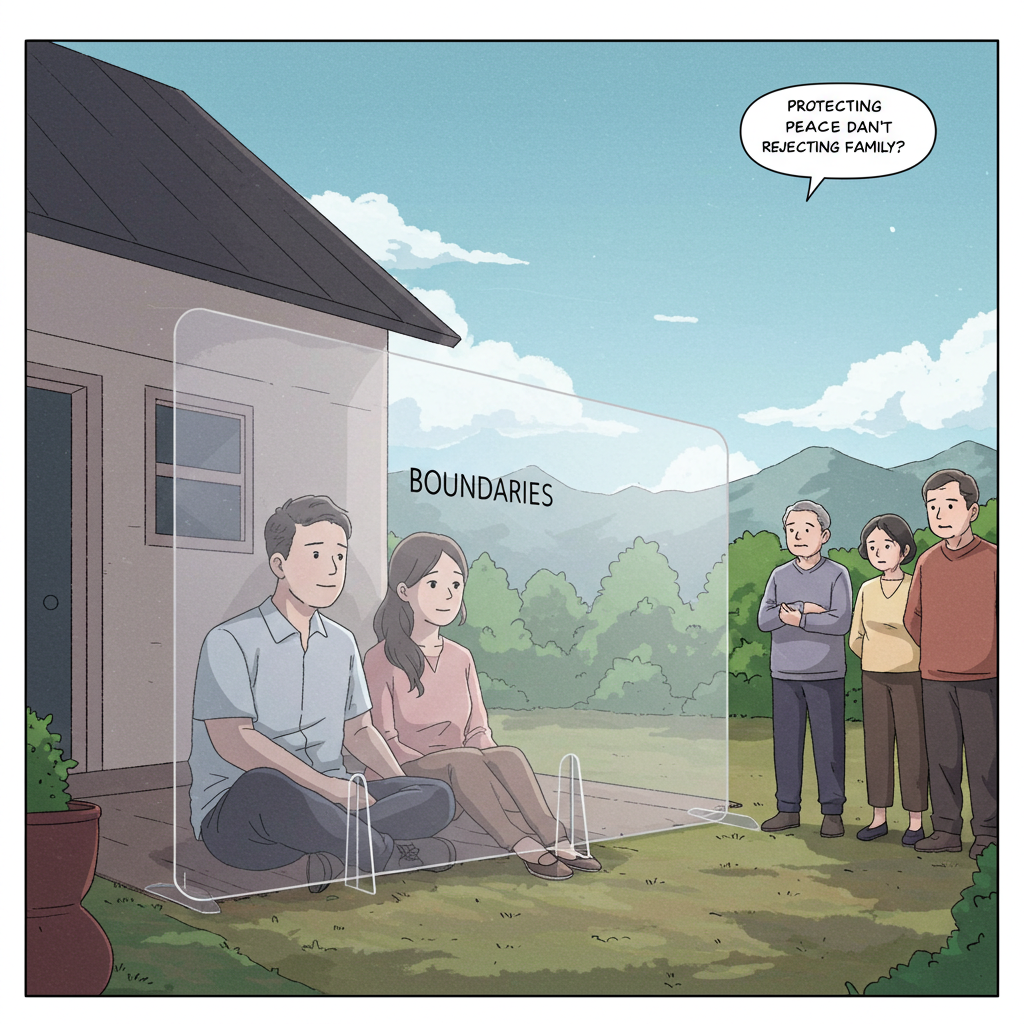
Choosing to protect your home environment doesn’t make you the bad guy. In fact, it shows a deep awareness of your own needs and those of your relationship. Hospitality has limits—and it’s okay to say, “This is ours.”
If your in-laws or extended family can’t understand that, it may be time for a broader conversation about mutual respect.
